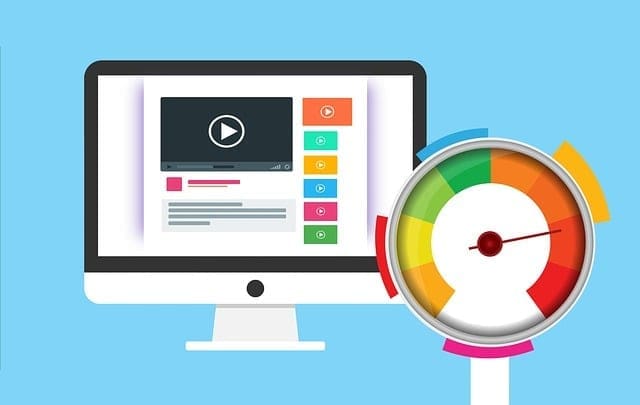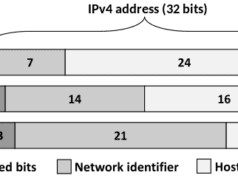VPN is an acronym for “virtual private network.” VPNs make your computer or phone safe to connect to the internet. A VPN will provide just that if you want anonymity and privacy when working online. It will hide your location and activity, so no one can track you, mainly if you are operating on public WiFi. It also allows you to browse the internet freely and without restriction.
The best part about VPNs is that you won’t need to be tech-savvy to use them. You can download a VPN, install it, and you will be good to go. Read on to learn more about VPNs.
What Can You Hide With a VPN?
A VPN can help you hide your IP address from your ISP (Internet Service Provider), meaning no one can trace you. It does this by encrypting your computer’s network connection. By doing so, your search and browsing history will be private. Your ISP will only see encrypted traffic moving to your VPN server, but they won’t be able to decrypt the data.
Remember that someone can use your IP address to know your location. A VPN can also allow you to change your internet location so that no one knows where you are. Using a VPN, you can set your location to a different country. For example, if you are in the US, you can select your location in Germany.
With a VPN, everything you do online will be anonymous. No one will know what you are doing online.
Is a VPN Essential for You?
A VPN has many benefits, some of which include the following:
Guarantees your privacy online
Suppose you like carrying out financial transactions online. In that case, you may use public WiFi to send details like bank account numbers, social security numbers, credit card numbers, etc. Doing so can expose your details to online hackers.
A VPN uses advanced encryption to ensure your details are safe. It also ensures the site receiving your personal information can’t trace your location or device.
Improves Internet Connection and Speed
In most cases, ISPs can slow your internet speed, making browsing difficult. They do so to control your data usage, especially if you have exceeded their set limit. Some ISPs use this strategy to force their clients to upgrade their connections, a practice referred to as “throttling.”
Your ISP provider will not know what you are doing online. A VPN can help you overcome “throttling” because your online activities will be private. When Using a VPN, your internet connection speed will remain normal even if you go beyond your data usage limit.
Saves you money
You may not have noticed it, but online shops and e-commerce websites show prices depending on locations. The prices shown when shopping for footwear and clothes, booking accommodations, booking flights, or subscribing to services differ depending on your country of residence.
A VPN will allow you to change your location to low-cost countries, saving significantly on your online purchases. You can research a country with lower prices and set it as your location.
What Essential Features Should a VPN Have?
For a VPN to serve its purpose effectively, it must have features that can help you browse anonymously and improve your browsing experience. Here are some features you should look for in a VPN.
Fast Speed

VPNs can slow down internet connections because they encrypt data before routing it through other servers. However, if you choose a VPN with high speed, you may not notice a change in your internet connectivity speed. A virtual private network that significantly reduces browsing speed is no use.
High-quality security protocols and strong encryption
The main reason you may need a VPN is to secure your connection and make you anonymous. A VPN can only achieve this purpose if it has high-quality security protocols and strong encryption. A good virtual private network should have 256-bit AES encryption, which is standard in this industry. It should also have a secure protocol like IKEv2 or OpenVPN. You have to take your security seriously and not settle for anything less.
Trustworthy and transparent privacy policies
Reading a VPN’s privacy policy can help gauge whether it is worth your time. It’s best to go with a VPN that has a strict no-logs policy. Otherwise, the provider could store your personal data and share it with governments and third parties. Also, ensure the provider is not within the 5/9/14 Eyes countries, which do not share surveillance data. The policy should also be transparent, with nothing hidden.
Cross-platform and multiple device compatibility
A good VPN should protect you whether you are working on your PC, tablet, laptop, or smartphone. It should also allow many simultaneous connections. It should also allow you to stream videos smoothly without constant buffering.
User-Friendliness
A VPN should be designed to be used by everyone, including people who are not tech-savvy. The VPN should also be easy to download and install. Don’t squander your money on an untrustworthy virtual, slow virtual private network with a difficult user interface.
Great customer support
Choose a VPN with reliable and great customer support. In an ideal situation, a provider should provide 24/7 customer support. They should also provide several communication channels through which you can reach them. If you encounter any issues while using the virtual private network, the provider should be available to assist you as soon as possible so that your work is not disrupted.
Accessibility
There’s no need to have a VPN that can’t serve you when you travel outside your country. A high-quality virtual private network will ensure you can access all your services and subscriptions no matter where you are. If you travel a lot, it’s wise to choose a VPN that’s accessible in all the countries you travel to frequently. So, before purchasing a VPN, research to find out which countries it is accessible in.
Price
Price is a crucial factor when choosing a VPN provider. As you may already know, some VPNs are free, but, as expected, free things never provide quality. You must be ready to dig deeper into your pockets if you want a secure, reliable, and safe virtual private network. But if you want a few features, you can go for a free VPN, but you will be putting yourself at risk.
To Sum it Up
Overall, your VPN of choice should be cost-effective. It should help you access online games and protect against trolls. It’s worth mentioning that it doesn’t function like an antivirus. So, even if you have it installed, you still need to install an antivirus. This is an added layer of security because it can protect you against hackers who use viruses to trace internet activities.
Featured Image by Dan Nelson from Pixabay




